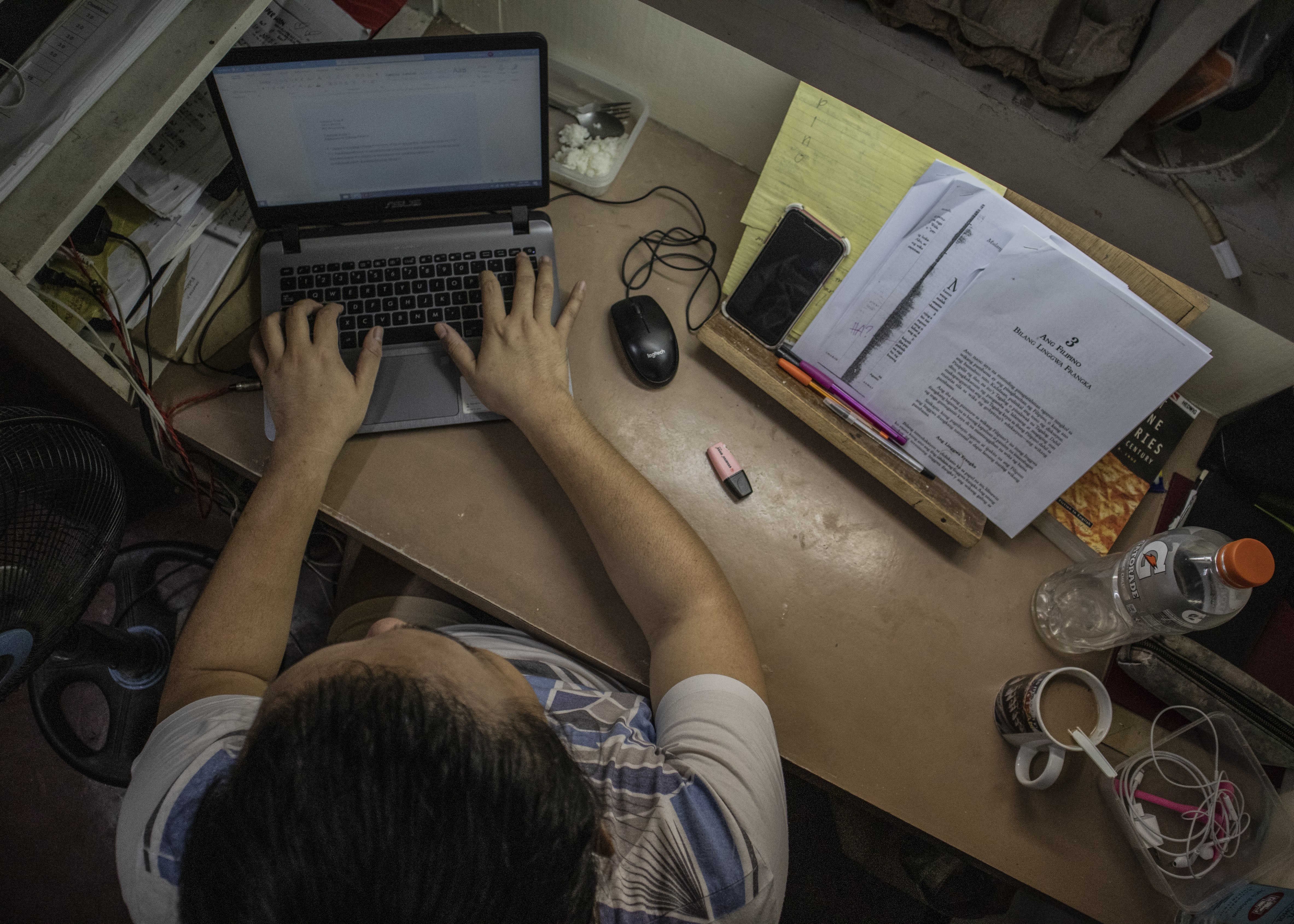New youth trends, life under pandemic to be examined in YAFS5
Recent years have seen marked changes in terms of young Filipinos’ health, values, and behavior. These include technological and cultural breakthroughs, new forms of engagements, and more prominently, the coronavirus disease (COVID-19) pandemic—to which young people have been forced to adapt their lives in many ways.

A college student studies remotely at home. The COVID-19 pandemic has reconfigured many aspects of young people's lives, including their education. | Photo by Lucky Dela Rosa (© Lucky Dela Rosa 2021)
To probe these trends and issues faced by today’s youth, the University of the Philippines Population Institute (UPPI) has involved a wide range of stakeholders in developing the design and tools of the 2021 Young Adult Fertility and Sexuality Study (YAFS5), the fifth in a series of nationwide cross-sectional studies on the Filipino youth.
Led by project coordinator Dr. Maria Midea M. Kabamalan, professor at the Institute, faculty and researchers at the UPPI explored several means of crowdsourcing youth issues due to fieldwork restrictions during the pandemic. These include gathering inputs from social media, online focus group discussions (FGDs) with young people in the age group of interest, and consultation with other stakeholders.
“Our approach is multidisciplinary and multi-sectoral so that we can examine the youth issues more holistically. It is also important to include the youth themselves in the conversation,” Dr. Kabamalan said.
The series of FGDs in April and May this year revealed the more intimate role of the Internet in shaping the youth’s consciousness. For one, the rise of dating applications and the popularity of content-generating online platforms like Tiktok point to the more complex ways in which this generation of young people build their identities and relationships. Based on the FGDs, the team of Dr. Violeda A. Umali of the UP College of Mass Communication updated questions on the youth’s media use. Meanwhile, the FGDs led by the team of Dr. Jose Antonio R. Clemente of the UP Department of Psychology informed the YAFS5 questions related to sexual orientation, gender identity, and gender expression (SOGIE).
Government and non-government stakeholders were also consulted in the development of the YAFS5 questionnaires. As the project funder, the Department of Health (DOH) formed and led the multibody YAFS5 National Steering Committee (NSC), which is tasked to provide strategic direction, guidance, and oversight to the development and conduct of the study. The study team met with the NSC to provide updates on the study on January 22.
Moreover, representatives of various government agencies, adolescent health experts, and medical professionals provided inputs during the online consultation on November 19, 2020, and the two-day consultative workshop last May 24 and 25, 2021. Attendees emphasized the need to include new questions or reorient existing ones in the light of the COVID-19 pandemic, including young people’s schooling, social connections, and access to reproductive health services.
After incorporating these suggestions and finalizing the questionnaires, the YAFS5 is now in its data-collection phase and has started multi-level training of survey personnel. The YAFS5 will cover all 17 regions in the country, involving at least 14,000 randomly selected respondents aged 15 to 24—making it the biggest study on the Filipino youth.
---
YAFS5 is on Twitter (@YAFS5PH) and Facebook (@YAFS5PH). Let us hear your views by using the hashtags: #YAFS5PH #TanongParaSaKabataan #KabataangPinoy
Share
